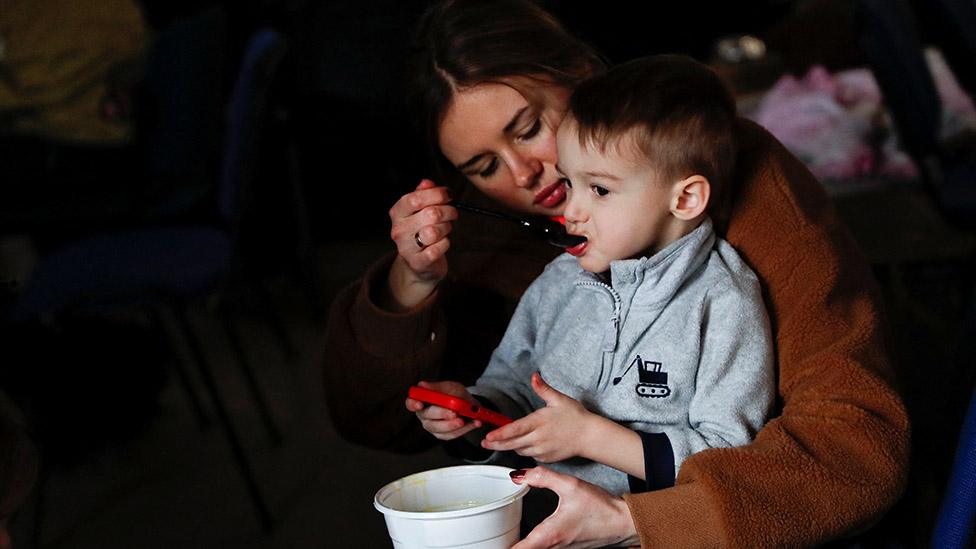Ukraine refugees: NI faces 'unprecedented' challenge
- Published
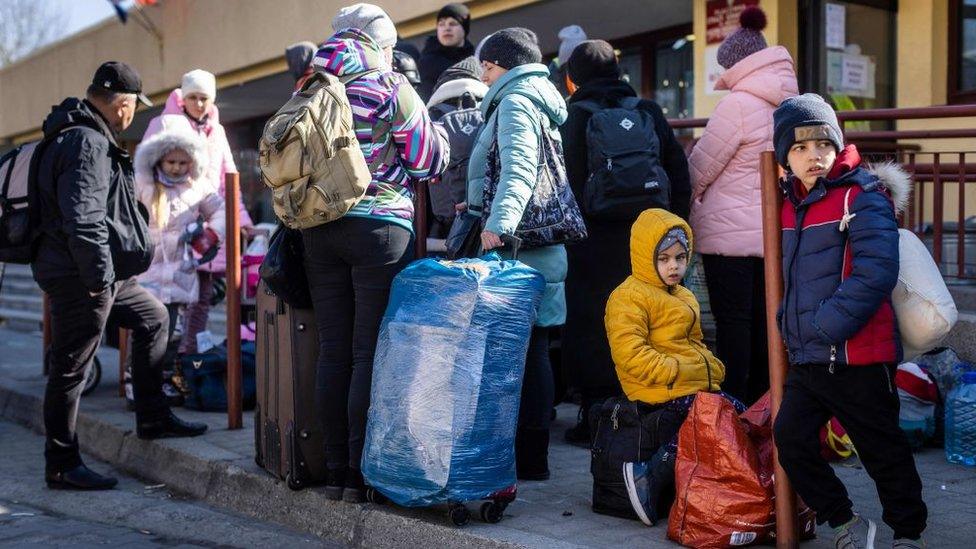
More than three million people have fled Ukraine over the past three weeks
Northern Ireland's authorities face an "unprecedented" challenge as they prepare to welcome an unknown number of Ukrainian refugees, senior Stormont officials have said.
There is no current estimate for the number expected, but officials predict the settlement will be bigger than anything they have dealt with before.
It will need a "whole of government and whole of society" approach, they said.
They hailed the public's response so far, but said more help will be needed.
People in Northern Ireland have made more offers to the Homes for Ukraine, external scheme than any other UK nation per head of the population, according to analysis by the BBC's Evening Extra team.
A total of 6,262 people in Northern Ireland have already expressed an interest in offering accommodation to Ukrainian refugees.
Government figures show 147,513 applications had been made across the UK, as of 10:00 on 17 March.
Stormont officials said it showed local people were "keen to help" and described the response to date as "fantastic".
However, they added that authorities would need the support of community groups, charities and volunteers in the coming weeks in order to support and help resettle refugees, many of whom will be traumatised.
Sheltering family members
Although they cannot predict how many Ukrainians will come to Northern Ireland, officials believe there are 600 Ukrainian nationals already living here, some of whom may wish to make space in their homes for their own relatives through the UK's visa scheme for family members.
That visa system could lead to about 2,000 refugees from family members alone, officials predicted.
But for refugees who arrive without any family or friends to support them, Stormont officials are considering opening several "welcome centres".
They are trying to identify existing buildings that already have onsite accommodation, such as outdoor education facilities or retreat centres.
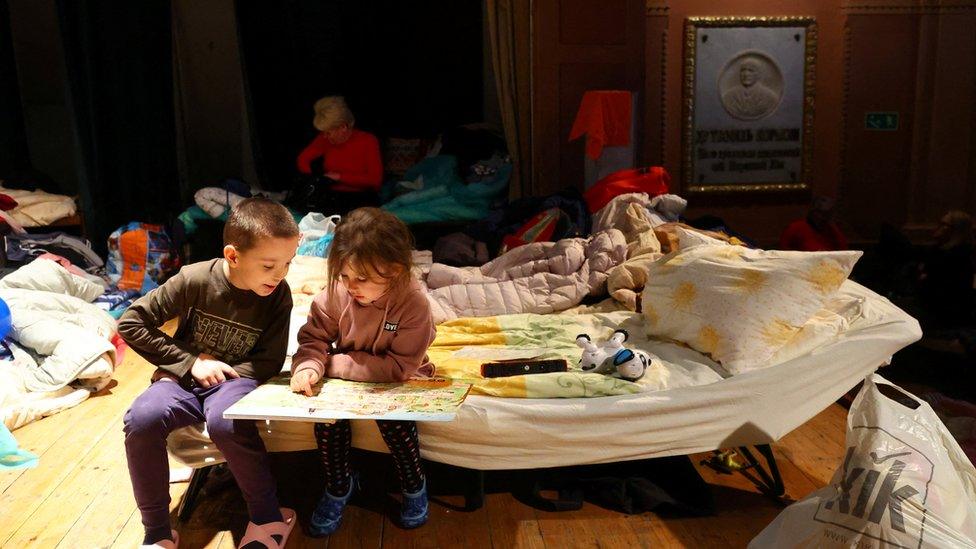
Most of the refugees have headed to Poland - these children are in the theatre hall of a building in Przemysl
These welcome centres would be a first port of call for Ukrainian refugees where they could get help with immigration issues, identity documents and also receive advice about accessing housing and benefits.
Ukrainians who are granted visas will be allowed to stay in the UK for up to three years, during which time they will be allowed to work and sort their own housing if they are able.
They will also be entitled to the same access to public services, including schools and NHS facilities, as other UK citizens.
How will this be funded?
Stormont officials said they expect additional funding will be provided by central government in order to meet the additional demands on local education and health services.
They indicated this is likely to be in the range of £10,500 per Ukrainian refugee for this year, with a higher amount allocated to child refugees because of their educational needs.
That money will be distributed among public services on the basis of individual refugees' needs.
Stormont already has some experience of dealing with large-scale refugee resettlements, having taken in about 2,000 people from Syria in recent years.
They were supported with additional funding from Westminster at £8,000 per refugee for the first year, and smaller annual amounts in subsequent years.
However, that resettlement could be controlled and managed in an organised way, with Syrians arriving in small groups in staggered intervals of between six and eight weeks at a time.
Because of the speed of developments in Ukraine, Stormont officials said they expect that a lot more refugees will arrive in Northern Ireland this time, and in a "shorter timeframe" than from previous conflicts.
The Westminster government has not put a cap on the number of Ukrainian refugees who can come to the UK.
Because so much is still unknown about how many people will travel to Northern Ireland, nor how long they will need to stay, Stormont officials said they are working on plans that they can "scale up or scale down" depending on requirements.
They said they will take a "person-centred" and "family-centred approach" when dealing with new arrivals, and "everyone will be treated with respect".
Safeguarding will be prioritised, especially when sorting out accommodation for child refugees, and anyone offering to shelter Ukrainians will be vetted through the Access NI system.
Officials are hoping that Ukrainians can integrate well into local communities and get the support they need to live independently.
- Published17 March 2022
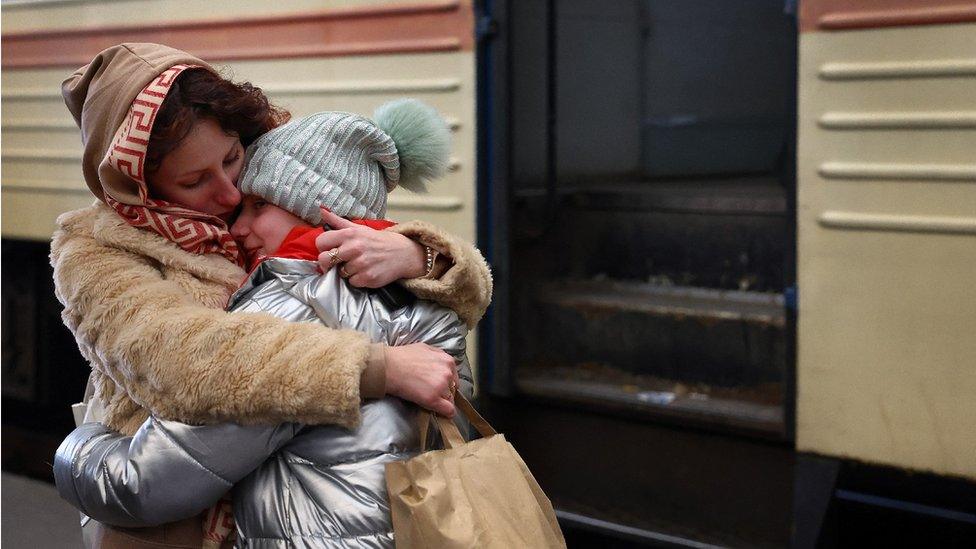
- Published15 March 2022
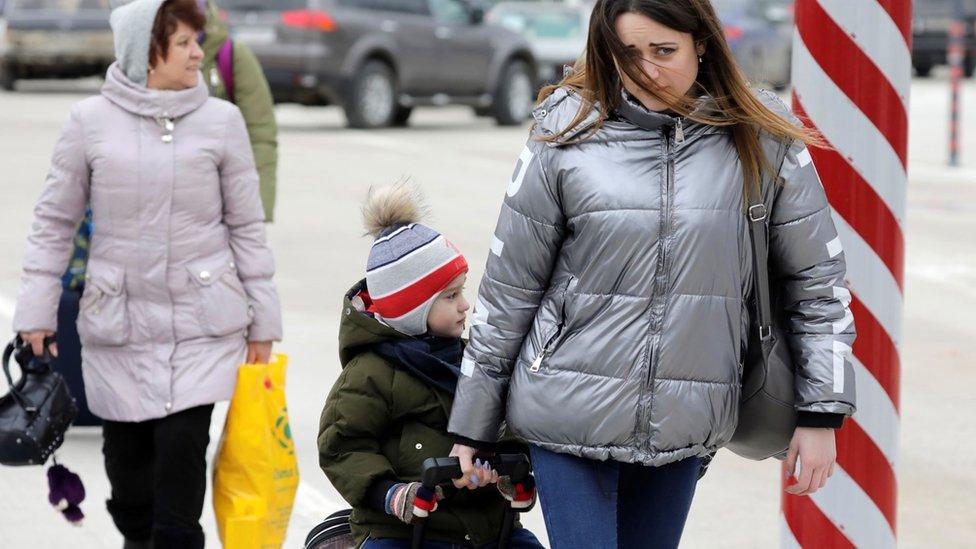
- Published14 March 2022
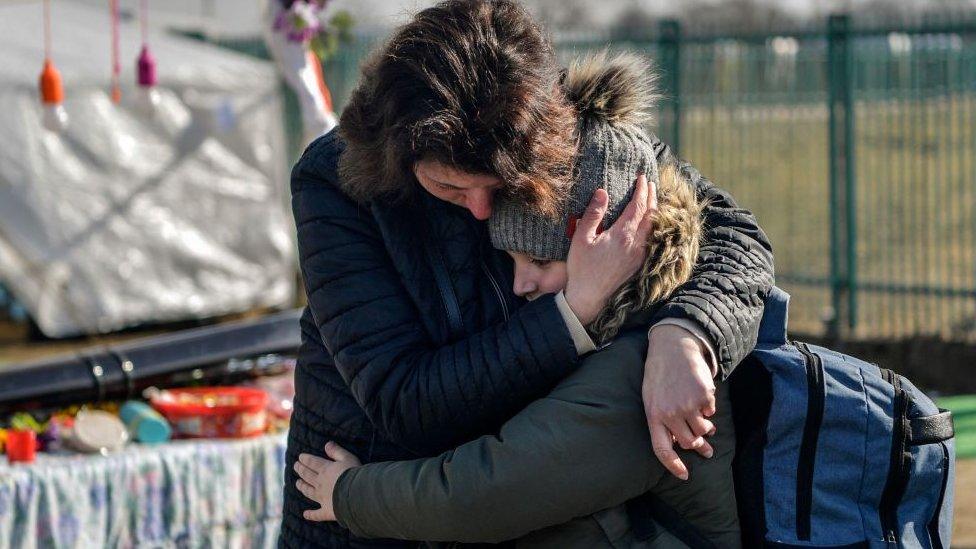
- Published8 April 2022
